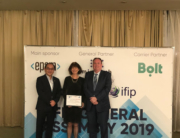ACM Releases TechBrief on Trusted AI
 ACM’s Technology Policy Council has released its “TechBrief: Trusted AI.” The TechBrief is focused on trustworthiness mechanisms and measures being advanced in artificial intelligence regulations and standards which may not actually increase trust.
ACM’s Technology Policy Council has released its “TechBrief: Trusted AI.” The TechBrief is focused on trustworthiness mechanisms and measures being advanced in artificial intelligence regulations and standards which may not actually increase trust.
The ACM TechBrief states that the effectiveness of mechanisms and metrics implemented to promote trust of AI must be empirically evaluated to determine if they actually do so. Distrust of AI calls for a deeper understanding of stakeholder perceptions, concerns, and fears. Fostering public trust of AI will require that policymakers demonstrate how they are making industry accountable to the public and their legitimate concerns.
Call for ACM-W Rising Star Award Nominations
 The ACM-W Rising Star Award recognises exceptional women or non-binary individuals whose early-career research has had a significant impact on the computing discipline, as measured by factors such as frequent citation of their work, creation of a new research area, a high degree of technology transfer, and/or other positive influences and societal impact. Self-nominations are encouraged.
The ACM-W Rising Star Award recognises exceptional women or non-binary individuals whose early-career research has had a significant impact on the computing discipline, as measured by factors such as frequent citation of their work, creation of a new research area, a high degree of technology transfer, and/or other positive influences and societal impact. Self-nominations are encouraged.
The award is given annually, and the recipient will receive a framed certificate and a $1,000 stipend. Nominations close on March 31, 2024. One award recipient will be selected by May 31, 2024.
Featured ACM Member: Christina Harrington
 Christina Harrington is an Assistant Professor at Carnegie Mellon University’s HCI Institute, where she is Director of the Equity and Health Innovations Design Research Lab. She also has a courtesy appointment in CMU’s School of Design. Her research addresses health and racial equity as well as new technologies to support the needs of historically marginalised groups. Harrington has presented her work at conferences including ACM CHI, CSCW, DIS, and various journals. She won Best Paper and Honorable Mention awards for her work on equitable participatory design with Black elders and Black youth.
Christina Harrington is an Assistant Professor at Carnegie Mellon University’s HCI Institute, where she is Director of the Equity and Health Innovations Design Research Lab. She also has a courtesy appointment in CMU’s School of Design. Her research addresses health and racial equity as well as new technologies to support the needs of historically marginalised groups. Harrington has presented her work at conferences including ACM CHI, CSCW, DIS, and various journals. She won Best Paper and Honorable Mention awards for her work on equitable participatory design with Black elders and Black youth.
In her interview, she discusses what made her decide to pursue a career in computing and specifically in human-computer interaction, Black-centered design,” broadening the participation of underrepresented groups in computing, and more.
Read Harrington’s interview here.
Featured ACM Member: Robert Metcalfe
 Robert Melancton Metcalfe is an Emeritus Professor of Electrical and Computer Engineering (ECE) at The University of Texas at Austin and a Research Affiliate in Computational Engineering at the Massachusetts Institute of Technology (MIT) Computer Science & Artificial Intelligence Laboratory (CSAIL).
Robert Melancton Metcalfe is an Emeritus Professor of Electrical and Computer Engineering (ECE) at The University of Texas at Austin and a Research Affiliate in Computational Engineering at the Massachusetts Institute of Technology (MIT) Computer Science & Artificial Intelligence Laboratory (CSAIL).
He is the recipient of the 2022 ACM A.M. Turing Award for the invention, standardisation, and commercialisation of Ethernet. In their classic 1976 Communications of the ACM article, “Ethernet: Distributed Packet Switching for Local Computer Networks.” Metcalfe and David Boggs described the design of Ethernet. Metcalfe then went on to guide the development of Ethernet over the next several decades. Today, Ethernet is the main conduit of network communications around the world.
In his interview, Metcalfe discusses the early development of Ethernet, why Ethernet became the preeminent connective technology, the new “connectivity” of the human condition, and more.
Read Metcalfe’s interview here.
ACM ByteCast: Ranveer Chandra
 In this episode of ACM ByteCast, Bruke Kifle hosts Ranveer Chandra, Managing Director for Research for Industry and CTO of Agri-Food at Microsoft. He also leads Microsoft’s Networking Research Group and has shipped multiple products over the years. He has been recognized by MIT Technology Review’s Top Innovators Under 35 and was most recently included in Newsweek’s list of America’s 50 most Disruptive Innovators.
In this episode of ACM ByteCast, Bruke Kifle hosts Ranveer Chandra, Managing Director for Research for Industry and CTO of Agri-Food at Microsoft. He also leads Microsoft’s Networking Research Group and has shipped multiple products over the years. He has been recognized by MIT Technology Review’s Top Innovators Under 35 and was most recently included in Newsweek’s list of America’s 50 most Disruptive Innovators.
Here Ranveer shares his journey—from growing up in India where he began to appreciate the agricultural industry during the summers he spent with his grandparents, to his PhD thesis on VirtualWifi which uses TV white spaces to bring internet connectivity to homes without WiFi. He explains how his experience interviewing farmers inspired him to work on technology that takes some of the guesswork out of their work using data and AI, and to come up with solutions that help the agriculture industry become more productive, profitable, and climate friendly.
Listen to ACM ByteCast interviews here or wherever you get your podcasts.





